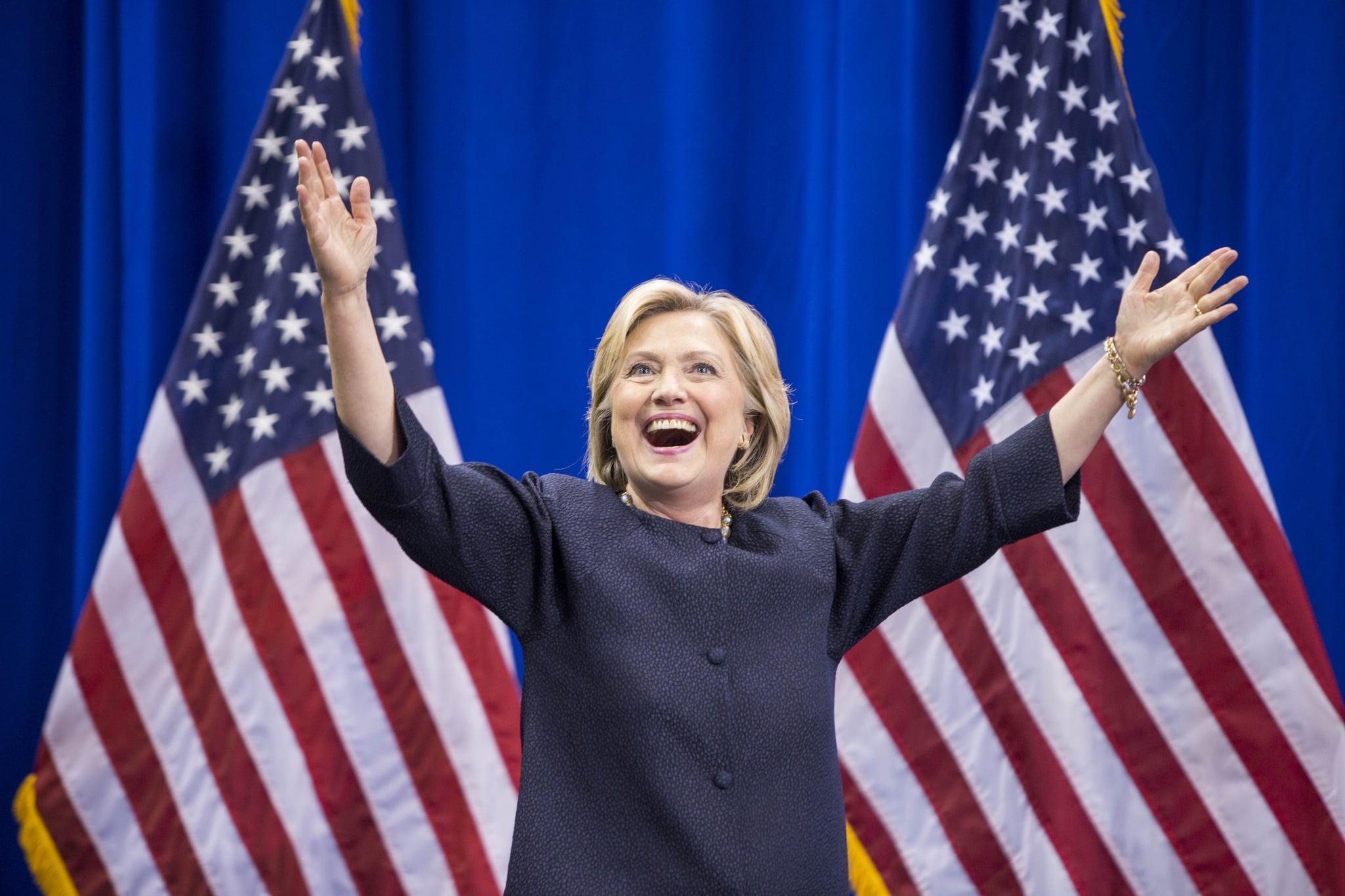
Hillary Clinton's history-making nomination is a major moment, but too often, people forget that accomplished, fierce females have been running for the highest office in the land since before they were even allowed to vote. In fact, about 30 different women have set their sights on the presidency in our country's 238 years, with varying degrees of success — and at varying degrees of risk to their personal safety.
Of course, the real truth is that women have always been a powerful force in American politics, even when they were barred from officially participating in it, either because of social mores or legal barriers. Abigail Adams, wife of John Adams, urged her husband and the other men drafting the Constitution to "remember the ladies" way back in 1776. (Apparently these two were such a model of equality they're basically considered the Beyoncé and Jay Z of their time among history geeks, who have been known to refer to them as "America's first power couple.")
There was also a handy loophole that allowed women to easily snag a seat in Congress when it was still a rarity for them to run and a near impossibility for them to be elected: a dead husband! In fact, 47 widows in American history have taken over for their husbands in Congress after said husbands passed away. The so-called "widow's mandate" still technically exists, and it allows women to petition to take over their deceased spouse's seat. The policy was thought to put constituents at ease by affording some continuity after the death of an elected official while allowing men to maintain the actual power while they looked for a suitable male successor.
Watch This!
Pop Quiz
The Cast of I Know What You Did Last Summer Play a Scary Game of Would You Rather
Thankfully, we now live in a time when it's not considered unheard of or even radical for a woman to run for Congress or the presidency on her own terms, whether her husband is dead, alive, or even exists. Here's a look back at just a few of the influential women who helped make Clinton's presidential bid a possibility, including one who never ran for the office but deserves a shout-out, anyway.
Victoria Woodhull
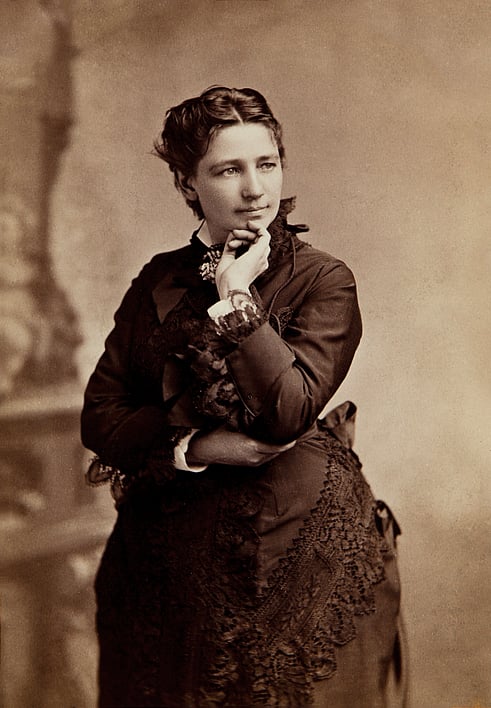
Photo courtesy Harvard Art Museums
In 1872, Victoria Woodhull became the first woman to ever make a play for the American presidency. And really, if anyone was bold enough to run for president nearly 50 years before they'd even be allowed to vote for president, it would be the bold, brash New Yorker. Woodhull, who ran for the Equal Rights Party, was something of a radical and something of an eccentric. She was known to scrape together money for her family by telling fortunes. She was a socialist (kinda like Bernie Sanders!) and staunchly for women's rights. She was also married three times, an outspoken proponent of free love, and an advocate for prostitutes, all of which were superscandalous moves back in the repressed, sex-panicked Victorian era. No surprise, then, that during the presidential race, Woodhull was so reviled she was referred to as "Mrs. Satan" in political cartoons. A few years after she lost the election, by a very wide margin, she packed up and moved to England, but her impact on American democracy is still felt today.
Shirley Chisholm
Chisholm was a badass. Not only did she become the first black woman elected to Congress when she was voted to represent New York in the House of Representatives in 1968, but she weathered racist vitriol and numerous assassination attempts during the course of her political career. In 1972, Chisholm ran for the Democratic nomination, and while George McGovern won the race, her effort helped establish several prowoman, problack policies in the party's platform. Chisholm remained in Congress until 1981 and passed away in 2005. Ten years after her death, President Obama presented her with a posthumous Presidential Medal of Freedom. "Shirley Chisholm's example transcends her life," he said in his remarks, "and when asked how she'd like to be remembered, she had an answer: 'I'd like them to say that Shirley Chisholm had guts.' And I'm proud to say it: Shirley Chisholm had guts." My favorite quote of Chisholm's not only sums up her life and work, but is also a kickass mantra for women and people of color everywhere: "If they don't give you a seat at the table, bring in a folding chair."
Patsy Takemoto Mink
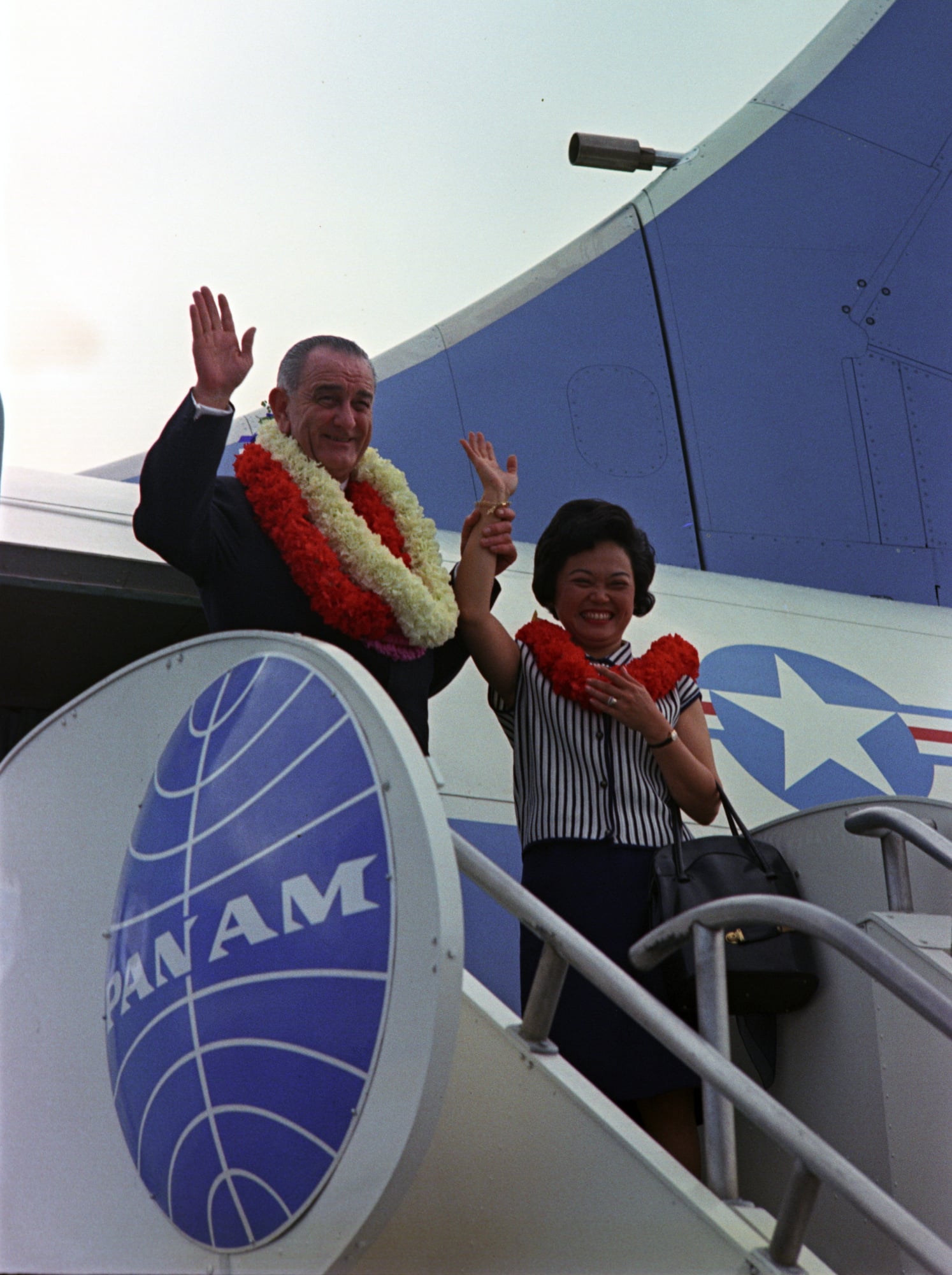
Photo courtesy LBJ Presidential Library
The same year Shirley Chisholm became the first black woman to run for president, Mink became the first Asian-American woman to run for president, also in the Democratic race. The congresswoman from Hawaii withdrew her candidacy after garnering just two percent of the vote in the Oregon primary, but she made a major impact in politics as a congresswoman and is often called "the mother of Title IX." A former high school basketball player herself, she championed the effort to require gender equity for girls and boys in any federally funded educational program. Since Tile IX became law in 1972, it's drastically increased the number of girls and women in athletics, given them more access to scholarships, and leveled the playing field (pardon our pun) for girls and boys in school sports. But Mink's prowoman crusade didn't end there; she also cleaned house in the Democratic and Congressional ranks when it came to sexism. Mink successfully led the charge to allow women to work out in the Senate gym, which had always been strictly for men. She also forced the resignation of a Democratic Party committee member and physician who suggested women were unfit to serve in government thanks to their "raging hormones." Boy, bye.
Ellen McCormack
McCormack is a complicated figure in the context of women's rights. Though she first ran for the Democractic nomination in 1976, her primary platform position was overturning Roe v. Wade, and she spent most of her federally matched campaign funds on prolife TV commercials like the one above, with the tagline: "Help me to keep these hearts beating." In 1980, she'd run for the Right-to-Life Party. The self-described housewife from Connecticut had no illusions about the third party's real chances at infiltrating the White House, however, and in later years characterized her run as "an effort to educate people."
Belva Lockwood
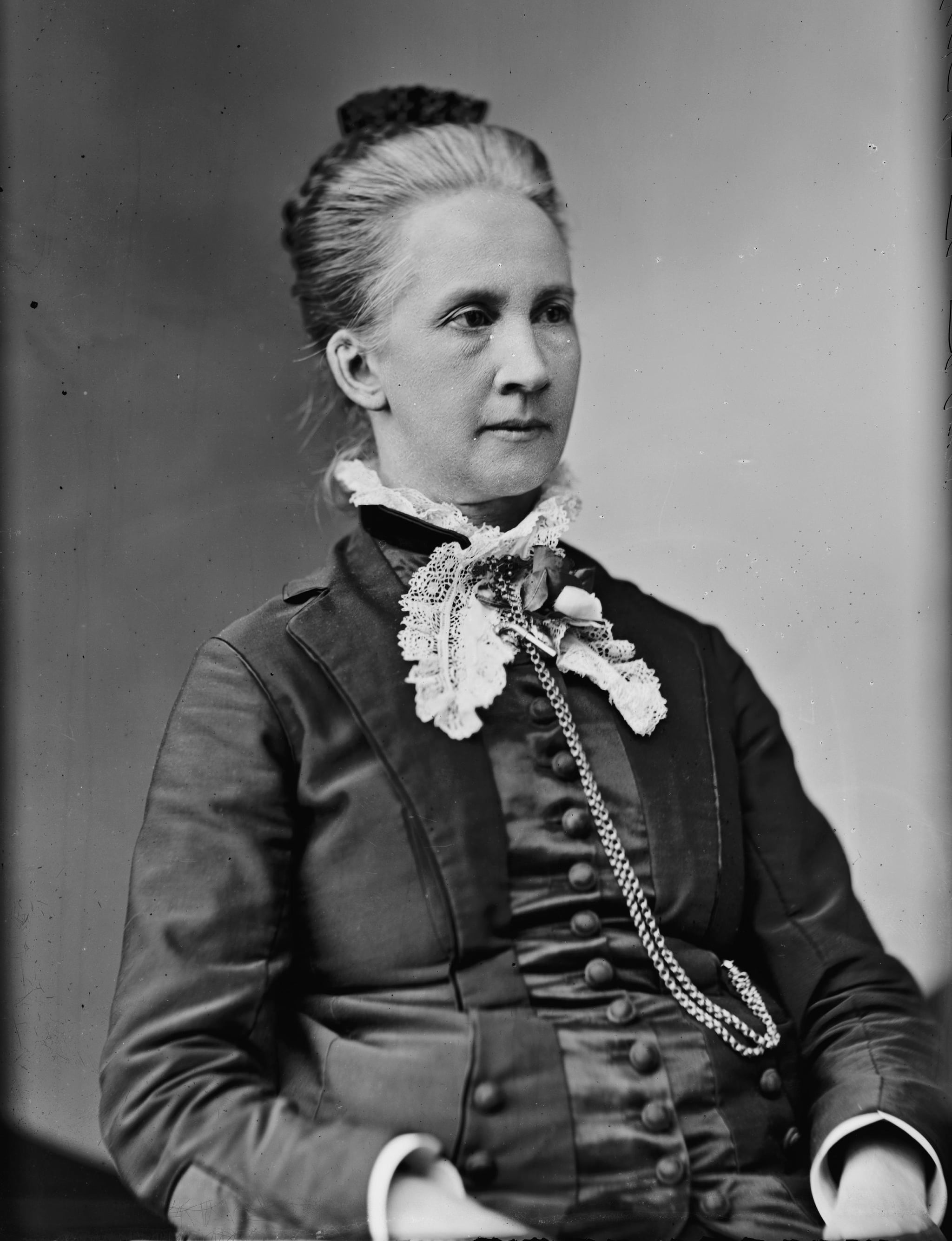
Photo courtesy Library of Congress
Lockwood was never the kind of woman who responded well to being told she couldn't do something simply because she was female. In 1879, she became the first woman to be sworn into the US Supreme Court Bar. The next year, she became the first woman to argue a case before the highest court. In 1884, the longtime DC resident ran for president for the Equal Rights Party. While Victoria Woodhull had come before her 12 years earlier, Lockwood's more mainstream reputation and established career makes her the first woman considered to run a real, full-fledged campaign for the office. Just a few years before her death, she said she still believed a woman would ascend to the presidency someday. "It will be entirely on her own merits," she said. "No movement can place her there simply because she is a woman."
Honorable Mention: Jeannette Rankin
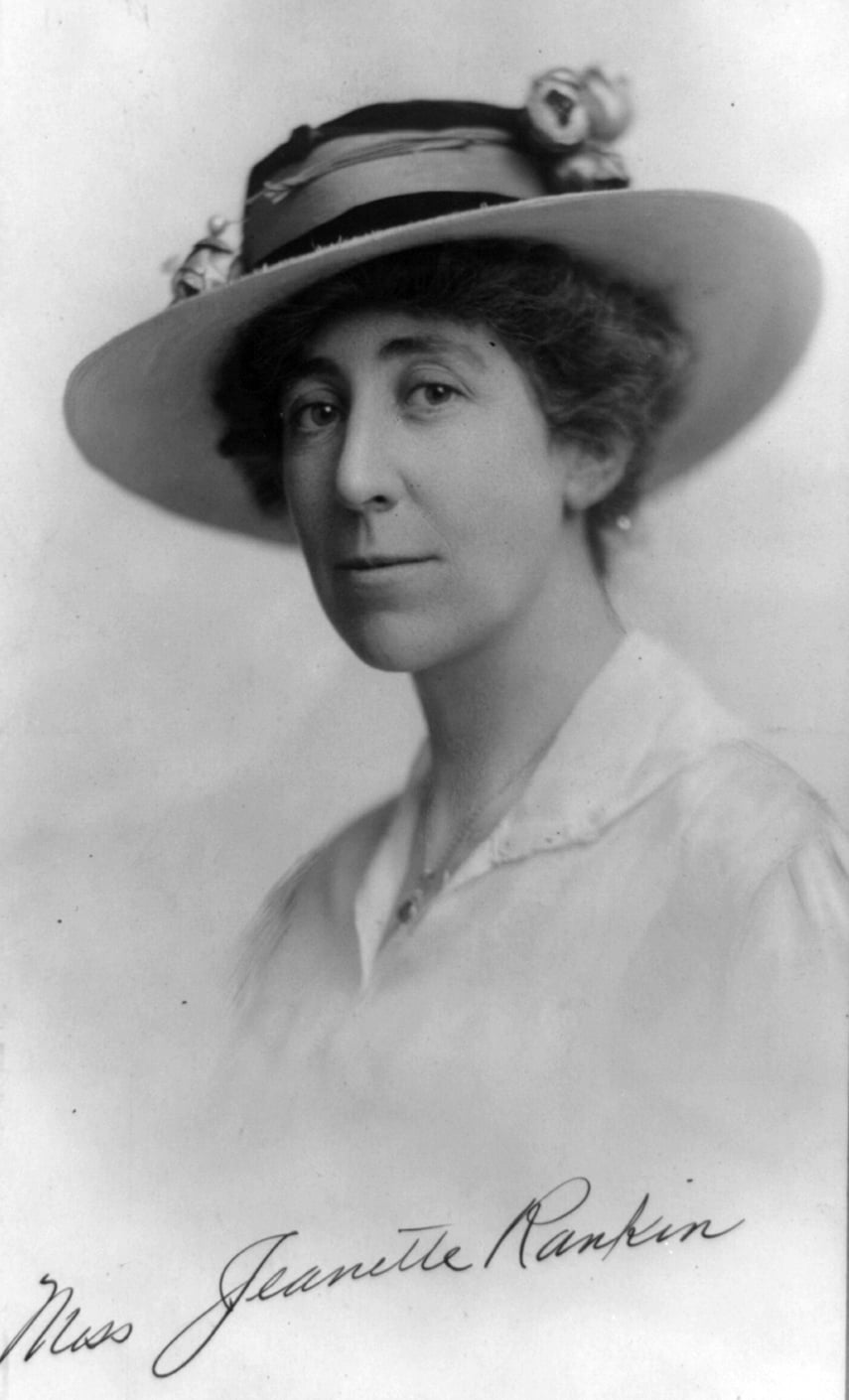
Photo courtesy Library of Congress
OK, so Rankin never actually ran for president, but she was the very first woman to be elected to Congress in 1916. Women in her home state of Montana had won the right to vote two years earlier, but her run was still so unprecedented and unexpected, newspaper editorials actually worried over the fact that she might have an "unfair advantage" among female voters. Sound familiar, anyone? When she did win, and the man she beat in the race drank poison and died, the common and widely accepted explanation that he was so distraught over losing to a woman that it literally killed him. (Insert eye-roll here.) Another example of the sexism she faced? A New York Times article once complimented her red hair and claimed that "if she is elected to Congress she will improve that body aesthetically. Even when good, Congress is not beautiful, and needs adornment." But despite the obstacles and condescension, Rankin advocated fiercely for the rights of women and children in American government, a legacy Hillary Clinton continues to this day.